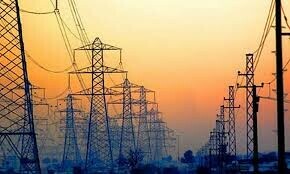
AS promised, the federal budget has gone far to sooth farmers’ nerves. It has met almost the entire range of growers’ demands for cutting production costs.
The electricity rate was reduced to Rs5.30/unit. The price of urea was cut by Rs400/bag, a bag of DAP by another Rs300, and the mark-up rate by 2pc.
The budget added Rs100bn to the credit tally and abolished special general sales tax on pesticides import. The steps are truly historic, given the earlier meagre budgetary allocations for the sector.
For the first time, the federal government has acknowledged that the performance of the agriculture sector is pivotal to the growth of gross domestic product
However, the post-budget debate in agricultural circles revolves around whether the government has gone far enough to revive the sector. Some farmers’ bodies and experts, however, accuse the government of a bad bargain; providing temporary relief at the cost of the long-term health of farming.
They do acknowledge that if the urea is sold at Rs1,400/bag, instead of over Rs1,800, the DAP costs Rs2,500 rather than Rs3,900 and the electricity rate is brought down to Rs5.35 instead of Rs8.85/unit, the farmer would get some relief. But the question remains, how would this relief outlast any further deterioration in the cost of output?
Beyond this debate, everyone is happy for one thing: the federal government, for the first time, has acknowledged that the performance of the agriculture sector is pivotal to the growth of the gross domestic product (GDP).
Farmers are happy that the government has realised the centrality of the agriculture sector in development planning. This certainly augurs well for the sector in the long run.
The farmers say that the problem concerning their economy is two-fold; the cost of inputs as well as the price of output. The government has focused on only one side — the cost of inputs, leaving the other one in the cold.
Without ensuring the market price of output through support price mechanism, no amount of relief would help the sector. The farmers protest only when commodity prices fall below their cost of production, otherwise they have been surviving with the prevailing cost of production for the last six year.
By bringing the cost of farm inoputs down, without allied steps for market stability, the government will only increase the farmers’ problems as well as its own. These price reductions would only lead to additional usage of all these inputs, increase productivity, create market gluts and lead to further, and regular, price crashes.
That is why farmers have been insisting on two things simultaneously: bring down cost of production as well as fix bottom line for commodity prices through support prices.
Farming is hit by low productivity and climate change. The low productivity is the result of a combination of many factors — bad seed, poor farm practices and poorer technological base — all of which need new research. The recent cotton debacle only clarified the length and of depth of a disaster climate change could wreak.
The farming community, along with other demands, has also been asking the government to invest in research and development. The budget completely ignored this part due to its invisible and intangible nature. The budget, as expected, only touched those areas that could keep farmers off the streets.
Published in Dawn, Business & Finance weekly, June 13th, 2016












































Dear visitor, the comments section is undergoing an overhaul and will return soon.